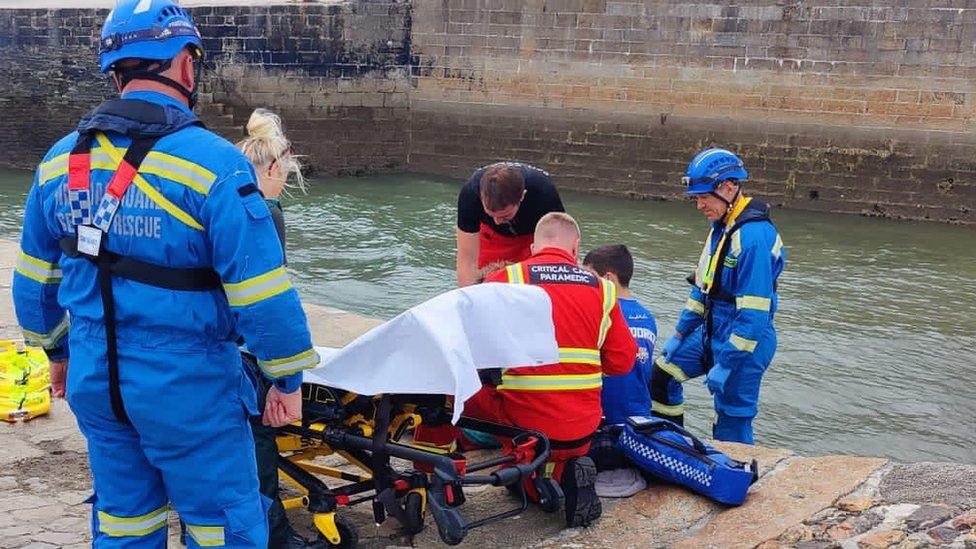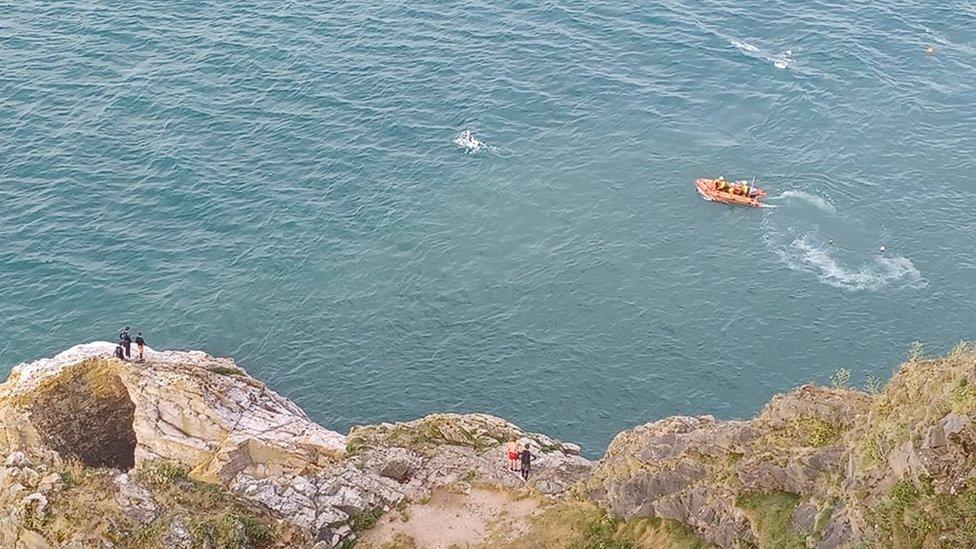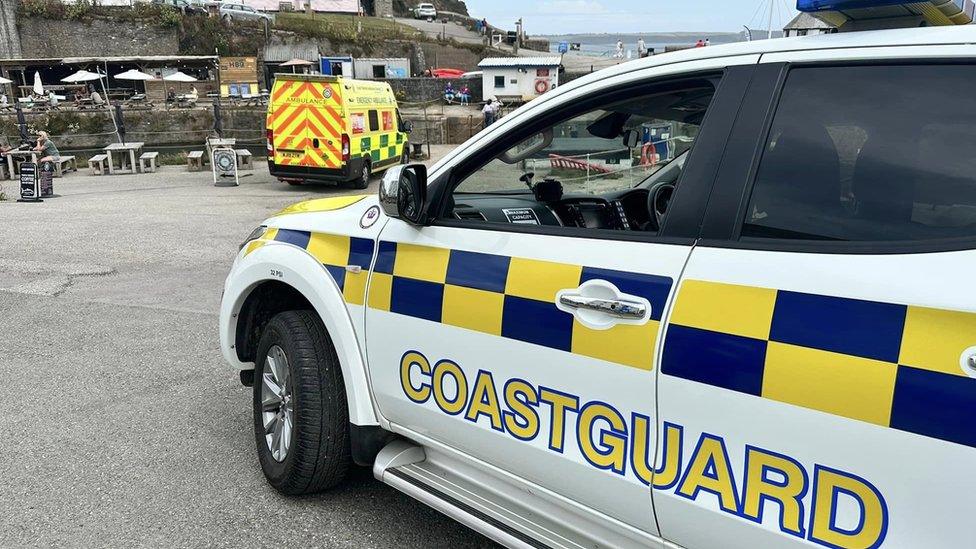Rescues prompt warning over 'tombstoning' dangers
- Published

A boy was rescued after he jumped into Charlestown Harbour at low tide
People are being warned about the dangers of "tombstoning" into the sea after rescues in Devon and Cornwall at the weekend.
Brixham Coastguard said a boy was found clinging to a marker buoy in deep water at Berry Head on Saturday.
St Austell Coastguard said another boy was injured and had to be rescued from Charlestown Harbour in a separate incident on Saturday.
"Tombstoning" involves jumping off cliffs or other high points into water.
It has led to a number of injuries and even deaths across the UK.

A child was found clinging to a marker buoy off Berry Head near Brixham
The rescue at Berry Head, near Brixham in Devon, happened at about 19:00 BST.
Rescuers said a child was found clinging to a marker buoy about 50 metres (164 feet) from the shore in a "very tidal area" before he was rescued by a lifeboat team.
Brixham Coastguard said "a large group of children" at the scene were given safety advice about the dangers of tombstoning.

The Coastguard warned about the dangers of tombstoning
In Cornwall, a boy was taken to hospital after he jumped into Charlestown Harbour while the tide was out on Saturday afternoon.
St Austell Coastguard said: "The team worked to extract a person injured while tombstoning.
"Once on a stretcher, he was transported to hospital by the ambulance service.
"Please check the depth of water before you enter it. This incident happened due to the tide being out and the water not being deep enough to jump in."
HM Coastguard referred to safety advice describing tombstoning as a "high-risk activity".
It said: "Changing tides and water depth, submerged items and cold water shock can cause death or life-changing injuries.
"Submerged hazards like rocks may not be visible and water may be shallower than it seems. Also, once in the water it may be impossible to get out."

Follow BBC News South West on Twitter, external, Facebook, external and Instagram, external. Send your story ideas to spotlight@bbc.co.uk, external.